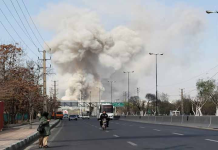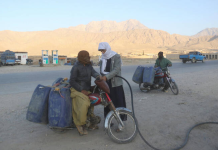TASHKENT, JUN 26 /DNA/ – A system will be created in Uzbekistan to continuously improve the knowledge of citizens and civil servants in the fight against corruption.
The President of Uzbekistan has signed the Resolution “On measures to introduce a system of continuous improvement of knowledge of the population and civil servants in the fight against corruption”.
The legal and institutional framework for preventing and combating corruption has been improved in Uzbekistan in recent years. At the same time, there is a need to raise to a new level the system of developing an intolerant attitude towards corruption among the population and civil servants, immunizing them with ‘integrity vaccine’, as well as increasing knowledge and skills in the fight against corruption based on the requirements of the time.
In this regard, the President of Uzbekistan has signed the Resolution “On measures to introduce a system of continuous improvement of knowledge of the population and civil servants in the fight against corruption”.
The Resolution will introduce a system of continuous improvement of knowledge of the population and civil servants in combating corruption.
For this purpose, from January 1, 2025,the Virtual Anti-Corruption Academy electronic platform (Virtual Academy) will be launched.
The Anti-Corruption Agency and the Law Enforcement Academy are in charge in organization and conduct of educational activities at the Virtual Academy. The Agency forms a contingent of civil servants who are subject to training, in agreement with the Academy, approves the annual training schedule, and monitors the quality organization of the educational process. The Agency submits annually information on the activities of the Virtual Academy to the National Anti-Corruption Council.
The key is that any citizen will have the opportunity to voluntarily study at the Academy’s basic courses. In particular, educational programs of various formats will be developed for preschool and school children, students, entrepreneurs, and representatives of nongovernmental organizations, taking into account their age, level of development and field of activity.
Increasing knowledge and skills in combating corruption at the Academy is mandatory for all civil servants.
This, undoubtedly, is of great importance in increasing the legal consciousness and culture of the population and civil servants, creating legal immunity from corruption in society, and cultivating the integrity values in the younger generation.
Training at the Virtual Academy in basic courses is organized free of charge for all users, and advanced training in special courses is fee-based.
The Agency formulates recommended annual research topics in the field of anti-corruption for higher education institutions and research organizations. All higher education and research organizations will annually submit to the Agency the results of research they conducted in the area. The Academy will maintain an electronic database on achievements, domestic and foreign experience, scientific, methodological and practical developments and research work.
Based on the Resolution, a Road Map is approved to ensure the effective functioning and strengthening of the material and technical base of the Virtual Anti-Corruption Academy electronic platform.
According to it, the Virtual Anti-Corruption Academy electronic platform and its mobile app will be launched by January 1, 2025. Special programs and content organized in the Virtual Academy for pre-school and school children, and students will be developed by October 1, 2024.
As part of the Global Resource for Anti-Corruption Education and Youth Empowerment (GRACE) Initiative, measures will be taken to create high-quality animated films, video and audio materials intended for students.
The launch of the Virtual Academy will serve to accelerate the formation of an intolerant attitude towards corruption in society, as well as the introduction of a system of continuous improvement of the knowledge and skills of the population and civil servants in the fight against corruption.

















